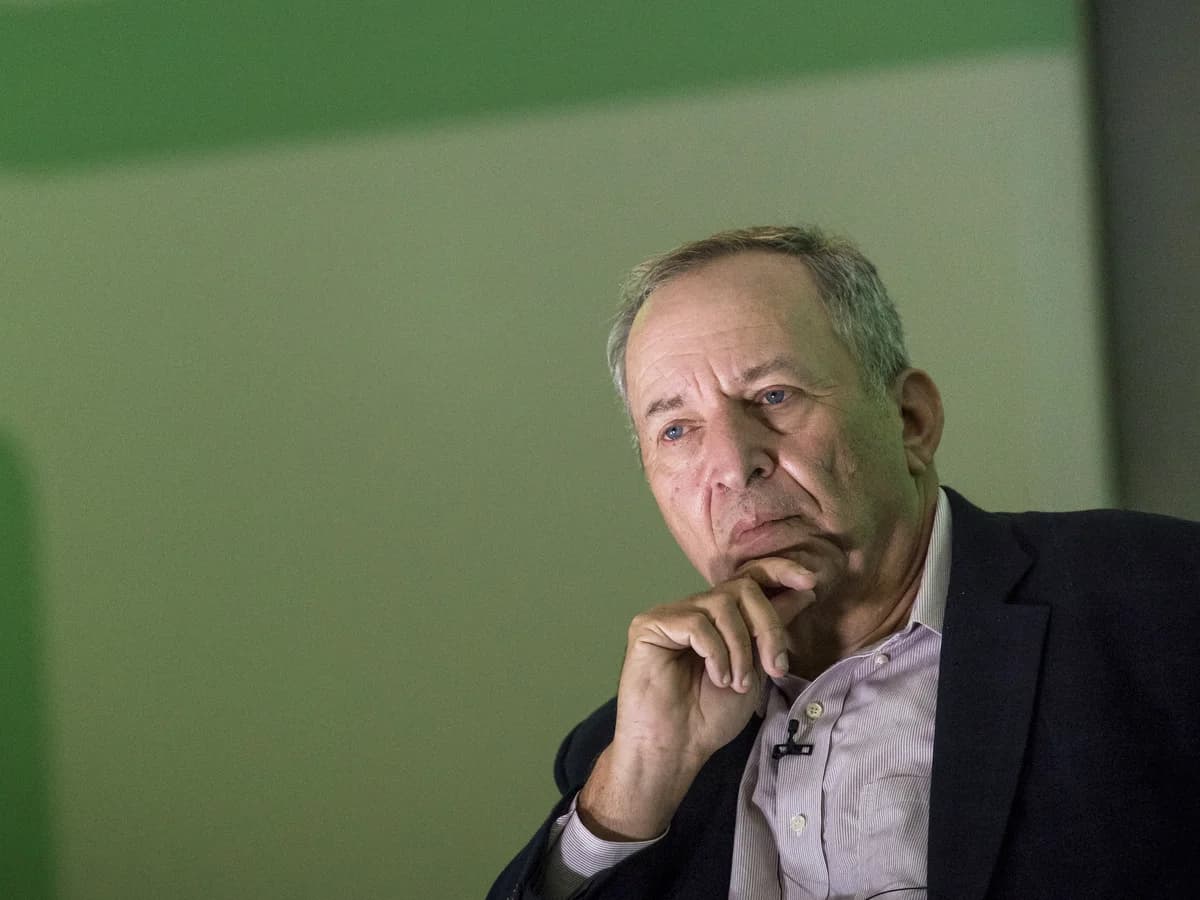We're loading the full news article for you. This includes the article content, images, author information, and related articles.
The former US Treasury Secretary and Harvard President has stepped back from public roles following the release of extensive email correspondence with convicted sex offender Jeffrey Epstein, sparking a global conversation on elite accountability.

Prominent American economist and former Harvard University President Larry Summers announced on Monday, November 17, 2025, that he will be stepping back from public commitments. The decision follows the release of thousands of pages of documents by the U.S. House Oversight Committee, which detailed his extensive and continued communication with the disgraced financier and convicted sex offender, Jeffrey Epstein.
In a statement, Summers expressed deep remorse for his association with Epstein, which continued until just a day before Epstein's arrest on federal sex trafficking charges in July 2019. "I am deeply ashamed of my actions and recognize the pain they have caused," Summers stated. "I take full responsibility for my misguided decision to continue communicating with Mr. Epstein." While he intends to continue his teaching duties at Harvard, Summers is withdrawing from other public-facing roles to "rebuild trust and repair relationships."
The fallout was immediate, with the Center for American Progress, a left-leaning think tank, confirming that Summers had ended his fellowship. He also stepped down from an advisory role at the Yale Budget Lab.
The cache of emails, released by the House Oversight Committee on November 12, 2025, spans from 2013 to 2019 and reveals a close relationship between the two men. The correspondence covered a range of topics, including Summers' personal life, politics, and Harvard-related projects. The documents show that Summers sought Epstein's advice and that Epstein acted as a confidant, at one point referring to himself as Summers' "wing man." This continued long after Epstein's 2008 conviction for soliciting prostitution from an underage girl.
The revelations have reignited a fierce debate about the accountability of powerful individuals and the institutions that enable them. The scandal highlights how Epstein used his wealth and connections to cultivate relationships with influential figures in academia, politics, and finance, thereby laundering his reputation. Elite universities like Harvard and the Massachusetts Institute of Technology (MIT) are facing scrutiny for accepting millions of dollars in donations from Epstein, even after his criminal conviction, a practice critics argue provided him with a veneer of credibility.
The release of the Epstein files has also intensified political tensions in the United States. On Friday, November 14, 2025, President Donald Trump publicly called on the Department of Justice (DOJ) and the FBI to investigate Epstein's relationships with prominent Democrats, including Summers and former President Bill Clinton. Attorney General Pam Bondi confirmed that the U.S. Attorney for the Southern District of New York would lead an investigation.
This move comes as the U.S. House of Representatives is expected to vote this week on the Epstein Files Transparency Act, a bill that would compel the DOJ to release all of its estimated 100,000 pages of files related to the Epstein investigation. In a reversal of his previous stance, President Trump urged Republicans on Sunday, November 16, to support the bill's passage. However, some critics suggest the new DOJ investigation could be a tactic to delay or block the release of these files, as ongoing investigations can be cited to withhold documents.
While there are no direct, discernible links between the Summers-Epstein scandal and Kenyan or East African entities in the released documents, the case offers a powerful lens through which to examine global issues of elite impunity, corruption, and the ethics of philanthropy. These themes resonate strongly in a region grappling with its own challenges related to financial crime and governance.
Reports from organizations like PwC and the African Development Bank have highlighted East Africa as a region facing significant challenges with procurement fraud, money laundering, and corruption. The Epstein case serves as a stark reminder of how powerful individuals can leverage their influence and financial networks to operate outside the bounds of conventional accountability, a pattern that has parallels in various contexts worldwide. The scandal underscores the critical importance of robust institutional governance, transparency in financial dealings, and ethical standards in both public and private sectors to prevent the abuse of power, whether in Washington D.C. or Nairobi.
Keep the conversation in one place—threads here stay linked to the story and in the forums.
Sign in to start a discussion
Start a conversation about this story and keep it linked here.
Other hot threads
E-sports and Gaming Community in Kenya
Active 9 months ago
The Role of Technology in Modern Agriculture (AgriTech)
Active 9 months ago
Popular Recreational Activities Across Counties
Active 9 months ago
Investing in Youth Sports Development Programs
Active 9 months ago